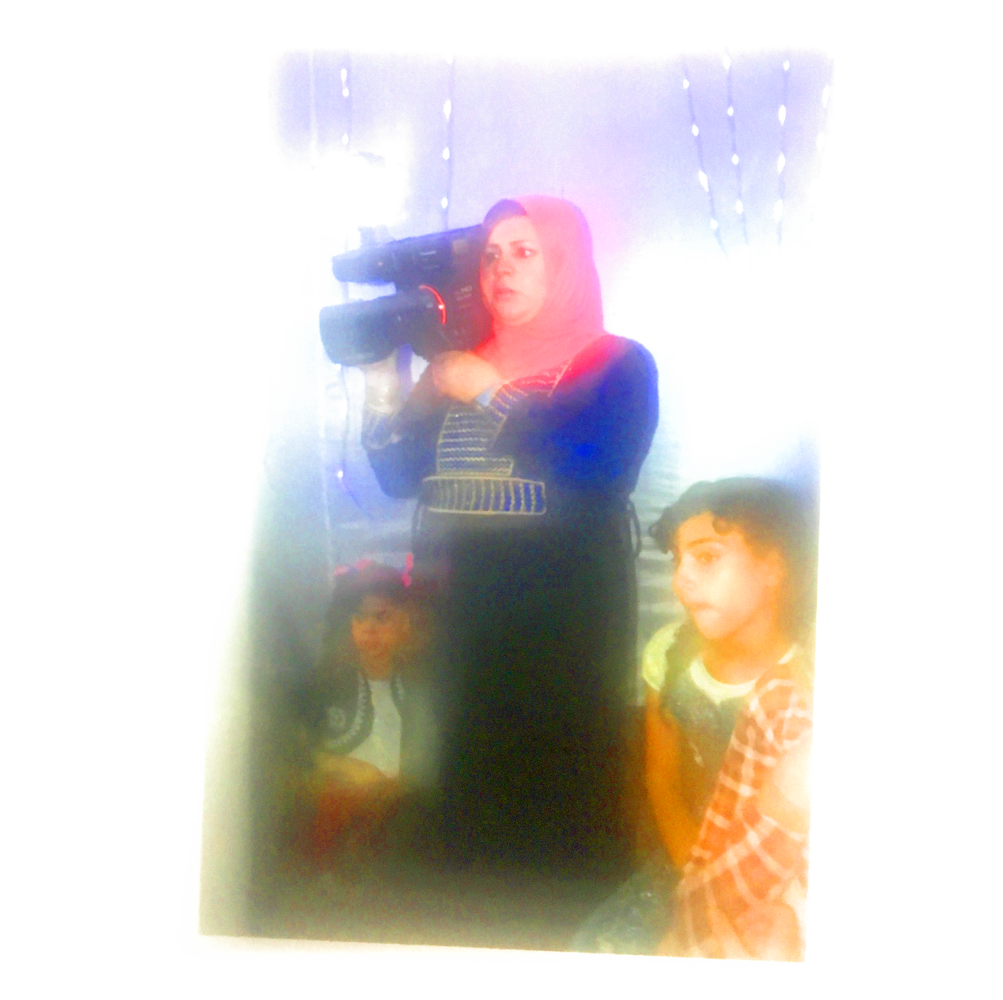
Down at the end of Nabrawy and Hussein El Me’mar Pasha streets, just minutes from Tahrir Square, lies one of those improbable Cairo junctions that seem to suggest an entire world. The environs of this one include the grand abandoned ruins of the old Champollion Palace, several auto repair shops, an all-girls school, the precinct of one drug lord, and the Townhouse Gallery for Contemporary Art. Townhouse, as the place is better known, has been an epicenter for art and artists from Egypt (and elsewhere) for nearly two decades; it has even played a not-inconsiderable role in the history of Bidoun. But Townhouse, which was founded in 1998 in an elegant if decrepit nineteenth-century building, is today neither a town house nor a gallery.
In early 2016, just before the fifth anniversary of the January 25 revolution, Townhouse’s offices were raided by Egyptian authorities. Several months later, a quarter of its main building caved in on itself. It was, it seemed, the end of an era.
And yet Townhouse is if anything more active than ever, having morphed and moved into nearby spaces. If you pay a visit to “the lane,” as the area around Townhouse is known, you might find schoolchildren drawing, artists arguing, Syrian and other refugees attending workshops, and strollers-by drifting into what is now the main Townhouse edifice, known as “the Factory,” to browse its library of books. Visitors are treated to occasional film and video screenings, as well as the odd exhibition.
I’ve known William Wells, the director and cofounder of this independent space, for over ten years, and during that time we have spent hundreds of hours in conversation. He is a consummate and exuberant storyteller, if not the most reliable of narrators. The same question can elicit various answers from him, depending on time, day, altitude, temperature, and what is happening in the city.
Wells is generally to be found sitting on a plastic chair outside, in the lane, wearing a navy sweatshirt and jeans, holding meetings and court. Recently, he traded in his decades-old black Ray-Ban Wayfarers for a fancier pair with a narrow strip of gold (fake, he assures me) on the rim. Over several weeks in March and April, we passed yet more hours on those wobbly plastic chairs, six years after Bidoun first sat down with him to talk about the revolution. What follows is a partial accounting of what we discussed.
Yasmine El Rashidi: Here we are.
William Wells: What do you mean, here we are?
YER: I mean, just — here we are, finally having our conversation.
WW: But we’ve been talking every day for hours. I haven’t got any work done since you came back.
YER: I know. I don’t know why you were so hard to reach over these months I was away. I mean, we kept in touch and all, but every time I tried to have this conversation with you or talk about writing or Bidoun… well, you evaded it all so well. I assumed you were busy, that things were a little crazy for you post-collapse, but I’ve been here almost every day for ten days, and both you and your staff act like us spending six hours talking every day is the most normal thing.
WW: [Laughter] Well, since it’s you, they all assume it’s work. Even the new ones who don’t know you, they’ve heard of you.
YER: You’re so good at making up stories.
WW: But this is true!
[Mina Noshy, the long-time bookstore and education-program manager enters]
WW: Do you want something to drink?
YER: I would love a coffee.
Mina Noshy: What kind of coffee?
YER: Just one of those lane coffees, like William’s.
MN: With sugar?
YER: Yes, please. Exactly like William has his. It’s the best coffee ever.
WW: I’m so glad you say that.
YER: It’s true — I miss it when I’m away. No one makes coffee like this. Occasionally you can almost replicate it in a deli, but still, it’s just not the same, even if close.
[Noshy exits]
WW: Okay. So what are we going to do now?
YER: Well, I have some —
WW: We have nothing to say. I have nothing to say. The things you want me to talk about aren’t interesting to anyone.
YER: Well, I still wanted to ask you about the day the building collapsed. I was in New York but I lived it over phone calls and emails with people here. And as you know, I was devastated; it felt rather symbolic to me. I cried for days…
WW: It’s funny how so many people felt that way, but for me it was the opposite.
YER: You and Negar [Azimi].
WW: I know! [Laughter] She always said she felt unsafe on the balconies —
YER: Which are the only thing left intact…
WW: Exactly.
YER: I remember being in tears, uncontrollable tears, talking to her on the phone — and she, completely cool, saying, “Well, everything comes to an end. Even Townhouse…” [Laughter] I wrote it down. I laugh at it now, how ready she seemed to move on, even though we know that in her own quiet way Negar is the most sentimental person on earth when it comes to you and Townhouse and —
WW: Old people. [Laughter]
YER: Can you tell me about that day? And the days leading up to it? You knew that the building was unstable, right?
WW: Oh, yes. The surveyors had been in weeks earlier —
YER: So you knew there were problems.
WW: And even earlier — I mean, when we took over the space downstairs, it was clear there were problems.
YER: I remember going in with you that first day — those immense cracks and gaps in the walls. There was a whole corner of the floor above that seemed to be sunken into that downstairs, or something — I mean, it looked that way, anyway…
WW: Exactly. It hadn’t been occupied in decades. It had been a Masonic lodge, you know.
YER: Which everyone thought meant Jewish temple…
WW: [Laughs] We’d been in the building for years and never felt a thing. I mean, the stairs were worn and missing a few steps, and the floors were creaky, and there were wires everywhere… but everything really was in perfect working order. And the surveyors insisted that the building was sound, so even after we started hearing the rumbles, the residents didn’t want to leave.
YER: The surveyors said the building was sound?
WW: You know how it is…
YER: Like the government recently announcing it was going to address the overpopulation problem by moving millions of Egyptians to Mars by 2020.
WW: [Laughs] I read that article! So anyway, I spoke to everyone and we had already moved things out of that side of the building, and we were still working as normal. I was still at home the next morning when it really started to rumble again…
YER: Someone called you?
WW: Guys from the lane. Luckily it was early, before 10am, so none of my staff were in yet. You know how it is here — if you’re near a crime scene, they’re going to arrest you. They have to blame someone. So I called everyone and told them to come to my apartment, where we would decide what to do.
YER: Were you still on the ninth floor then?
WW: Yes, the duplex. So we all met downstairs. It became the operations room.
YER: What were you wearing, and what was the mood?
WW: My pajamas. [Laughter] Just kidding. But the mood was — everyone was emotional. Visibly upset. Like you, they felt it was the end of something.
YER: Of Townhouse?
WW: Of the world.
YER: Because Townhouse is the world.
WW: Their world.
YER: And yours…
WW: Well, I was just sitting there through it all. I remember exactly. Just sitting there. Not saying anything. It was Ayman’s [Ramadan] wedding the next day and we were all meant to go to the village — all of us, that evening. There had been so much excitement and preparation. And I knew we had to go. I knew. Don’t ask me how I knew, but my gut told me. And after listening to everyone go back and forth for a long time, there was this silence. And very calmly I told them to go home, get cleaned up, get the sound system and everything else they had prepared, and bring their suits and ties. That we were going to the village as planned, and we were going to have the best time of our lives. And one of them, I remember he looked at someone next to him, and he said, “He doesn’t care.” I’ll never forget that moment. “He doesn’t care.”
YER: They thought you were defeated? That you had given up?
WW: Exactly. That it was over for me.
YER: But did you feel defeated? I mean, you’d been through so much, it’s not like you needed more tragedy. I’ve spent more time in police stations and hospitals courtesy of Townhouse tragedies than I can count…
WW: I knew it wasn’t over. But I also knew that for that to be true, we had to go to that wedding and we had to have a great time.
YER: And you did.
WW: We had the best time ever. The guys danced all night, and everyone was in the best mood, and it broke something —
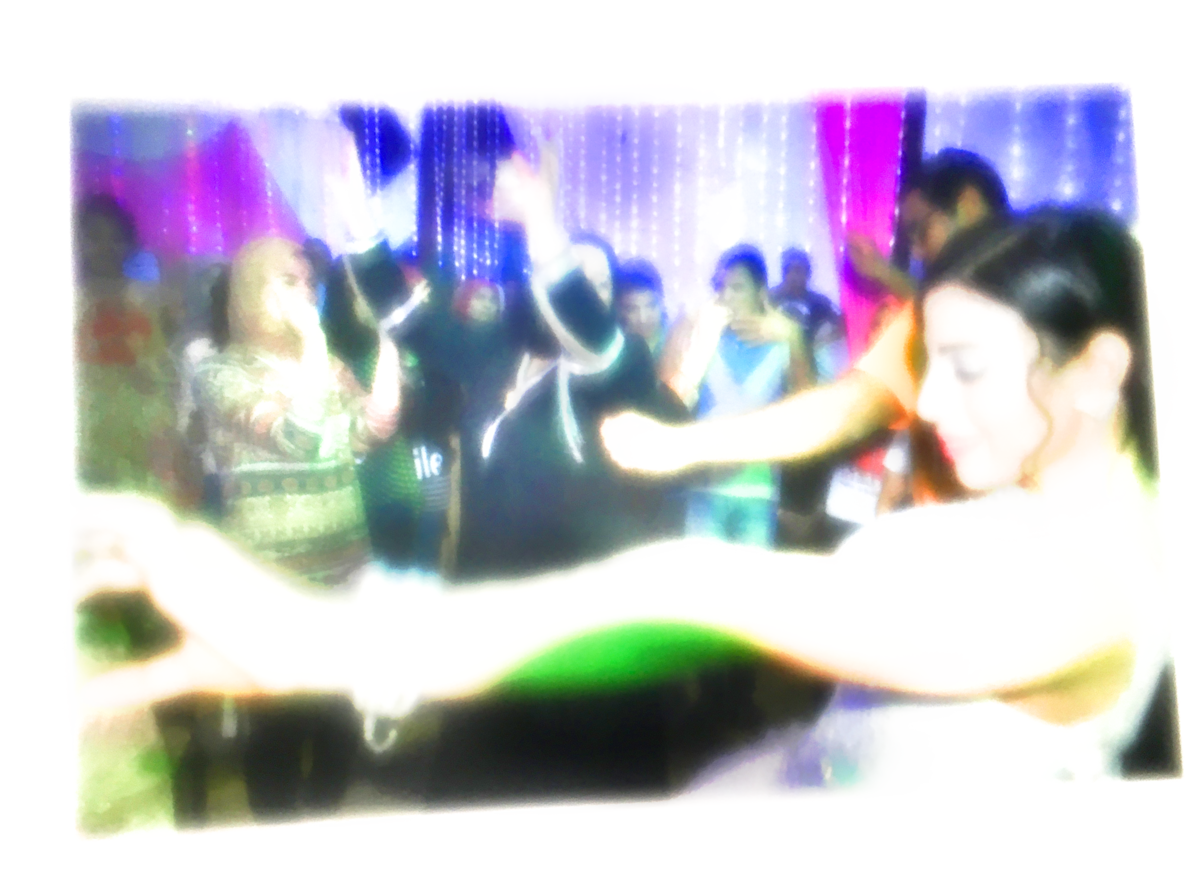
YER: It punctured the momentum of the collapse, in a way? Which made it possible for people to not be weighed down or broken by this.
WW: I just knew that we had to come together and not allow the collapse of the building to be symbolic. It was just a building. We had other possibilities. Other spaces. Townhouse was more than that building.
YER: That’s an incredibly cogent thought or feeling for a moment like that.
WW: I couldn’t tell you how and why I knew that.
YER: A building is so charged. I understand that sense of collapse, not just as symbolic of a current moment or the state of things but… We hold onto spaces as containers of lives, of memories and histories. Like my mother and the house —
WW: Which is so real in many ways. But we had other spaces. Your mother has no other space.
YER: People described you as so determined to move forward. Nobody could talk to you about loss or sorrow because you were already moving forward, talking about exhibitions and programming and —
WW: I can’t remember anything except for that story I just told you.
YER: Which was two hours after the collapse.
WW: Exactly two hours. [Laughs] You see, I told you none of this is interesting.
YER: Well, I would still like to hear about what unfolded in the days after the collapse.
WW: I think Ayman’s wedding is the only moment that matters. That, and then when we got the building back. There was this battle back and forth for days between different entities of the government. Either it was going to be torn down or we would win — we would be able to get it back and restore it. We were in the lane when the final news came, and I swear to you, I was jumping up and down and hugging people —
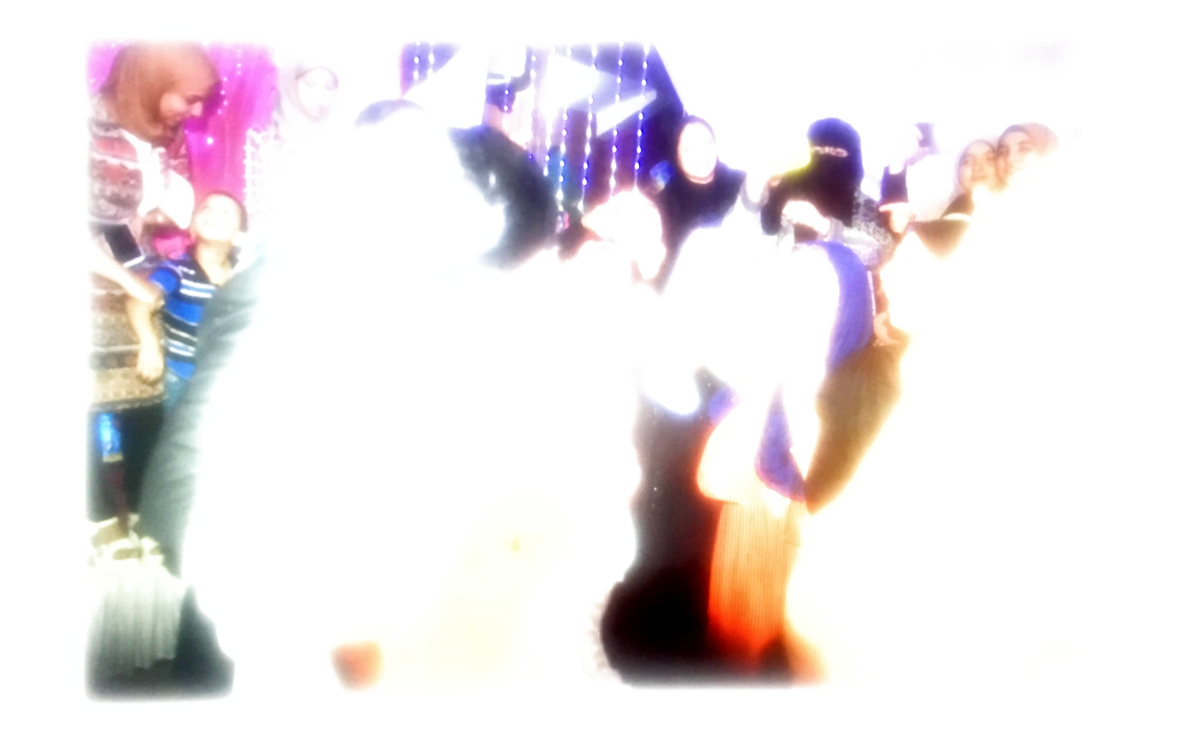
YER: I don’t know what’s harder to imagine, the jumping up and down or the hugging.
WW: You hug me every time you come in here!
YER: I know. I realized that I’ve been doing that for years, and you’re clearly not comfortable, since you still stand a meter away and hug. [Laughter] I can stop. I can write you notes instead, if you prefer.
WW: You’re right, though. It really changed things between me and the others in the lane. I mean, the lane is great, but there’s politics, lots of politics. But after that moment, they would forgive me for anything. Anything. I can’t understand it.
YER: Well, you sort of just said it. You’re generally so guarded — as expressive as you can be in other ways, as generous as you are, when it comes to your own emotions, you’re so guarded. So that… exaltation. The jumping, the hugging — losing control of yourself — it’s like your emotions pouring out. Showing how much you care about this thing that they care about too…
WW: You’re exactly right. That’s it. Emotions pouring out.
YER: So now you’re going to rebuild?
WW: We’ll be in by December.
YER: December?! But it’s still an immense pile of rubble…?
WW: [Laughs] Well, maybe December isn’t realistic. But it’s amazing how the whole street has come together for this. Everyone has chipped in money. It’s like a beginning again.
YER: Have you ever felt like it was ending? Have you ever thought of leaving?
WW: Never.
YER: Not once, ever? What is it that keeps you going, day after day, with all you’ve been through. I have to be honest — at one point I thought for sure that Townhouse was cursed. It was just nonstop tragedy. So much drama! Nervous breakdowns, illnesses, police arrests, hospitalizations, the accident, and so on. I almost thought I should stay away… [Laughter].
WW: You didn’t! [Laughter]
YER: Huda [Lutfi] was over for dinner the other day and she said that you’re like a cat; you’ve had at least nine lives. I just imagine that anyone else would have left long ago.
WW: Where would I go? I can’t imagine any other life.
YER: [Laughter] Did you ever expect to be here so long?
WW: I didn’t really think about it, but I‘ve never thought of leaving.
YER: What about Los Angeles? When I saw you there, when you were at that residency for those few months, you seemed pretty settled. Happy, even. You were more social there than you’ve been in your whole life here. Do you remember all those years that you wouldn’t even go to Townhouse openings?
WW: [Laughter]. I am happy in LA. I love being there. So do you?
YER: I do. And I keep wondering about that. If it has to do with the sense of time, which feels expanded, like it does here. And also, density. LA has breathing space. There aren’t people everywhere, like in New York.
WW: People everywhere.
YER: Cairo is dense, but not in the same way as New York… Bruce [Ferguson] says it has to do with the desert — LA and the desert and Cairo and the desert. And we were talking about how Los Angeles and Cairo are almost on the same latitude. There’s only four degrees difference. So I wonder if there is some sort of relationship in terms of the tenor of these places, the sky and sounds and atmospheres, the light, the horizon. And, as I say that word, as well as the horizontal nature of these places, their geographies.
WW: I think that’s exactly it, all those things. But I can only be in LA because I have Cairo. You could never be in New York if you didn’t have Cairo.
YER: You’re probably right. You’ve been here for such a long time.
WW: Since 1984. I had that gallery in London before that, and since then…
YER: But didn’t you come here earlier, on a visit?
WW: Around 1976, yes. As an art student. In fact, let me show you — someone sent me drawings of mine the other day that he has had all these years, from the cafes. I had a studio at home, but I used to go out every evening and make these charcoal drawings… [Pulls out his computer]
YER: William!
WW: But you can’t show them to anyone.
YER: How would I show them to anyone? They’re on your computer. But I love them. Do you still draw?
WW: Never.
YER: Never?
WW: Well, let me think about that. I don’t know if I still draw.
YER: You either draw or you don’t?
WW: [Laughter]
YER: I’m going to take that to mean that you draw.
WW: We should really talk about what we’re going to tell Bidoun. They’re going to be extremely upset.
YER: About what?
WW: About why this didn’t work. Maybe we could write them a letter together. And explain that we tried to have a conversation, but it wasn’t of interest to anyone. Maybe you could write a piece for them instead.
YER: But that’s precisely the point: We are having this conversation because we were both supposed to write things…
WW: What were we supposed to write about?
YER: Yours was going to be called “Diary of a Collapse.”
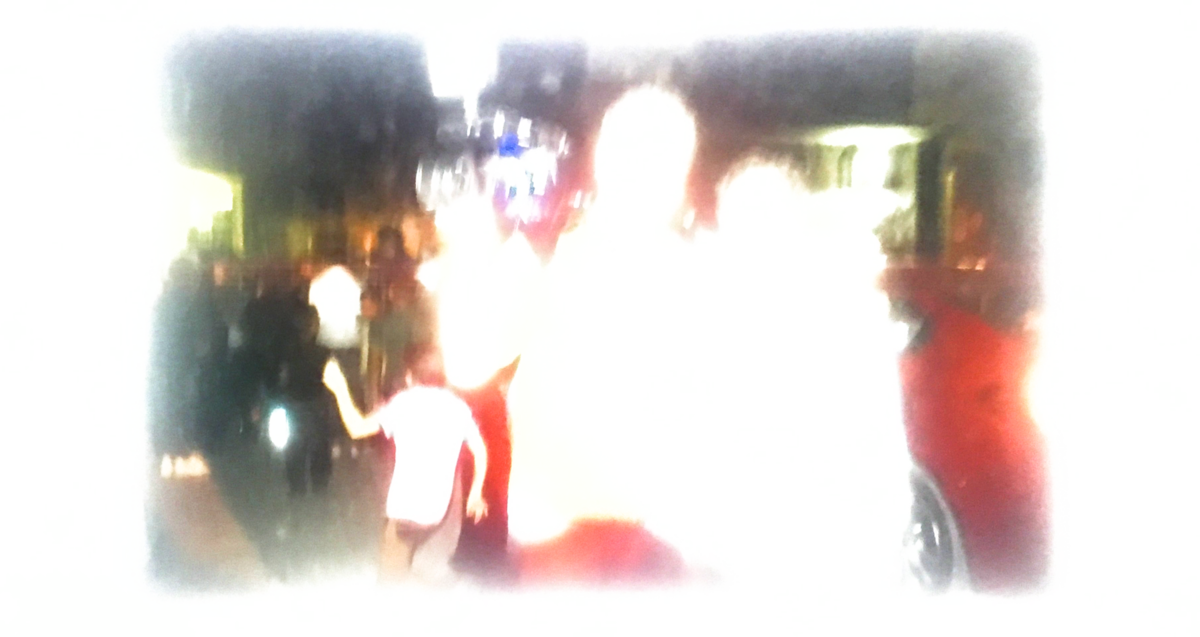
WW: Oh, yes! I remember now.
YER: And I was going to write some sort of… psychohistory of the past six years. Revisiting that piece I wrote a few years ago.
WW: What piece?
YER: You know, that piece. The summer of Rabaa.
WW: The summer that nobody talks about.
YER: Exactly, which is why I haven’t yet been able to return to it.
WW: Well, you did what nobody else could do, which was brave. You wrote about it.
YER: I didn’t want to… I remember my —
WW: But you did.
YER: I did. My editor, Bob [Silvers], who just died (allah yerhamu), sent me an email the morning they cleared the square asking if I could write something, and I said I needed more time. He wrote back to say he could wait a week. I couldn’t say no to him.
WW: So what happened?
YER: Well, I had been reporting on the human-rights situation under the elected government, which, according to some human-rights organizations, had a terrible human-rights record. Even worse than Mubarak’s.
WW: Morsi’s government.
YER: Yes. So I had all this reporting from the previous nine months. And so when it happened — when the police cleared Rabaa — and I had been there that morning, remember? Well, I felt I had to weave it all into something that took into account the histories of both of these groups —
WW: The police and the Brotherhood.
YER: Exactly, and their records of brutality —
WW: Which they both had —
YER: — but everyone else just wrote about it as an army massacre of the people.
WW: Even though we knew it was much more complex than that.
YER: Do you remember that day? And the attacks in the police stations, and —
WW: On the Copts, yes. Mina was terrified.
YER: Yes, so my piece took all that into account too.
WW: Nobody will admit to being out on the streets that summer calling for Morsi’s ouster. I mean, everyone was there, but no one will admit it.
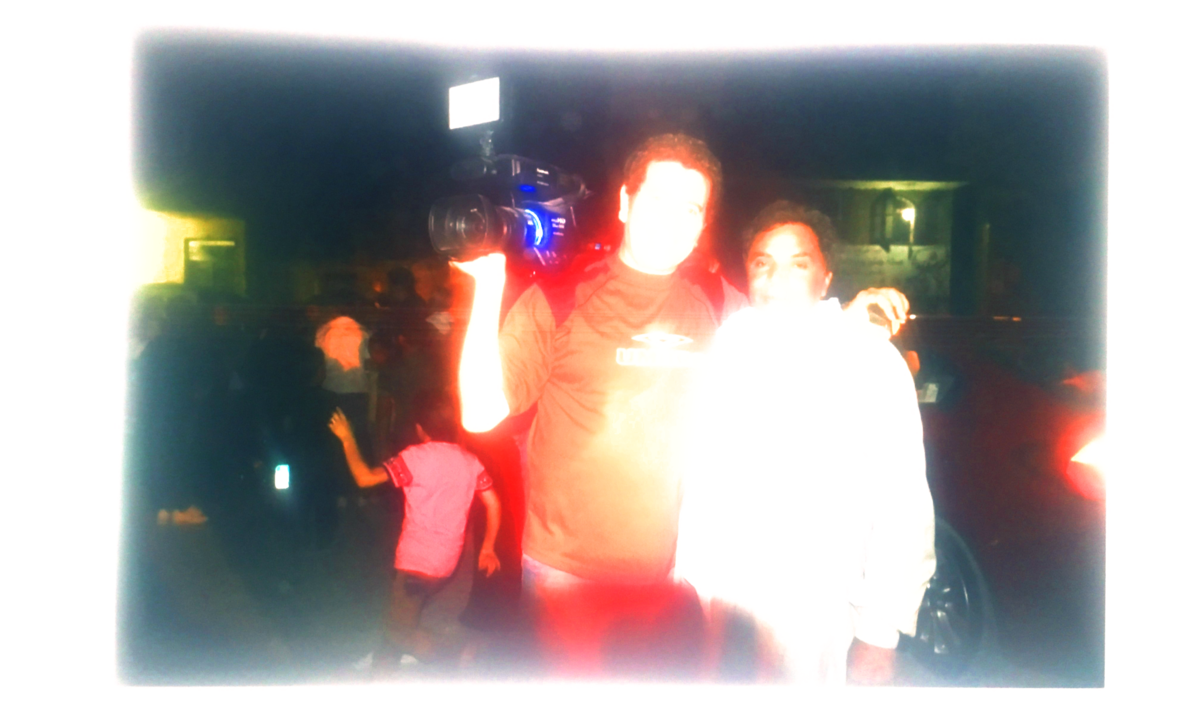
YER: But for me, it was…
WW: You put it in writing.
YER: It was traumatic. The backlash, the criticism, the hate, the disdain. The idea that to be on the left meant supporting the underdog, regardless of who that underdog is.
WW: Regardless of who the underdog is.
YER: We all know that —
WW: Everyone wanted you to ignore… to pretend they didn’t support 2013. And ignore the millions who were on the streets that summer.
YER: Millions. I had never seen so many people out on the streets, in all the years of protest.
WW: I’ll never forget going out onto the balcony and looking out… This was nothing like 2011 — it was so much bigger. Multitudes bigger. I can’t even describe it. It didn’t matter to me what the BBC was saying, whether it was one million or ten or thirty-three — all I knew was that it was more people than ever before.
YER: People stopped talking to me. Others sent me nasty emails or Twitter messages. I felt like I was practically crucified on Facebook. Close friends were disdainfully silent. We would communicate about other things but I could feel their judgment. And I’ve been thinking about it ever since.
WW: Second-guessing yourself…
YER: Whether I took a position by trying to not take a position. Whether I should have had more sympathy or anger, one way or another — and if I didn’t, why I didn’t. I’ve been turning it over inside of me ever since, almost four years now, because it isn’t about politics really. Not just politics. It’s also about upbringing and values and judgment and fear and so many other things that go into the makeup of a person, which I’ve been trying to parse ever since, really scrutinizing, to try and understand. I guess that’s what I was meant to write about, but it’s still not entirely clear to me. All this… it’s why I haven’t written since. Really written, the way I had been. I’ve tried to write but haven’t written.
WW: You wrote a whole book!
YER: A novel. It’s so different.
WW: How is it different?
YER: Fiction affords you a measure of distance. It’s very intimate, in that you inhabit a character, but you inhabit a character who isn’t you. It’s not you and it’s not your life, no matter how many resemblances or resonances or borrowings there might be.
WW: It’s funny, because I’m sure people read your book and think it’s just your life. But I know how different your life is, even if there are parts of the book that are you. I mean, for one, I don’t think your mother is that way at all?
YER: Exactly. My character is so far from me in many ways. She’s much more a personification of a political state, or stasis, which affects us all. It was freeing, precisely because of that.
WW: I can’t write at all.
YER: You were writing in Los Angeles?
WW: But I can’t write here.
YER: Do you have a sense of why?
WW: My writing feels inconsequential when I have all this around me.
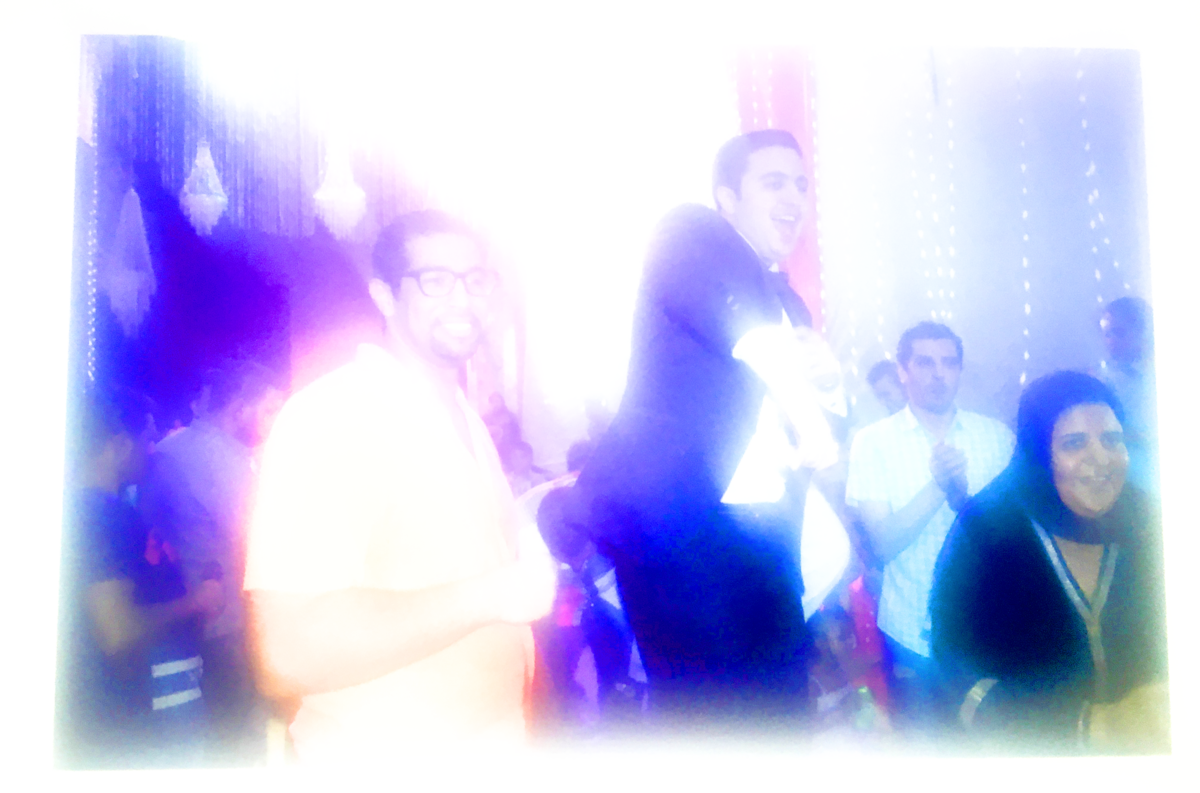
YER: But you write these amazing emails to people, letters really, about precisely that all this around you.
WW: [Silence]
YER: Can I read you something you wrote?
WW: Oh, no. Please don’t?
YER: Just this small excerpt of a letter, such a beautiful letter, I wish I had written it:
Dear Yasmine,
I meant to write you a long mail over the last weekend, but that fell through. I woke up this morning thinking I would write before I started work. Then I opened the shutters and I was hit by a bleak cold. We always talk about Cairo and the contradictory relationships we have with it, but on days like today it is underscored. To say the sky is gray has no meaning. Everything is gray: the walls of the buildings, balconies, windows, doorways, the trees, the street, the clothes of the people, the air we breathe. This is not the pollution of a city center or when a dark cloud passes over but the color of suffocation. I can’t help feeling we are drowning in a dry mud.
It is not just the impoverished that are diminished but a population.
Sitting in front of the Factory, they are trying to dislodge a large branch of a tree that was damaged when a large truck passed through the lane. An elderly man watching the scene moved over to my side and told me it is going to rain and everything will be better. We both pulled our jackets tighter around our bodies. More people gathered and the man moved in closer, bringing with him the smell of deprivation. Everyone was wrapped in layers of clothes. Fouad, who sells corn on Mahmoud Bassiouny with his son every night stood behind me. The stench of months of burnt charcoal and corn. More people moved in, and all the odors became one dense physical presence.
But to leave it at that would be deceiving. The conversation, flirtatious humor, laughter, bickering and loud, ever-so-loud color of life. The voices, sounds and people don’t level the gray but do offer us one reason for our relationship with this place.
And it goes on. Equally lyrically.
WW: I wrote that? That’s a pretty good letter. [Laughter]
YER: Okay then, just one more part of it, since I’ve read this email out loud to myself so many times. And, I have to admit, to others as well:
It is now a few hours later.
Gallery is full of activity. Two of the young men working for me had birthdays today so a cake in the library was in order with all the visitors invited. A young nine-year-old girl has brought in her own private collection to show Amgad, and he has given her a space in the exhibition to display it. A journalist from NPR is here; it’s her first visit. I convinced her to move downtown. She is Palestinian and so smart. Lara is here, as she is most days. Huda holding court after her opening at Gypsum on Thursday night. Uncertain why she would meet people here instead of there. Samir’s talk is tonight, and they are preparing chairs. It is hard to compete with an atmosphere like this, and despite the pending rain, the depression, and pessimism, life here really is fulfilling.
I have decided that since you’re coming so soon, then I won’t attempt to Skype as it is so unsatisfactory. Offering the sense of spending time with someone, then not really.
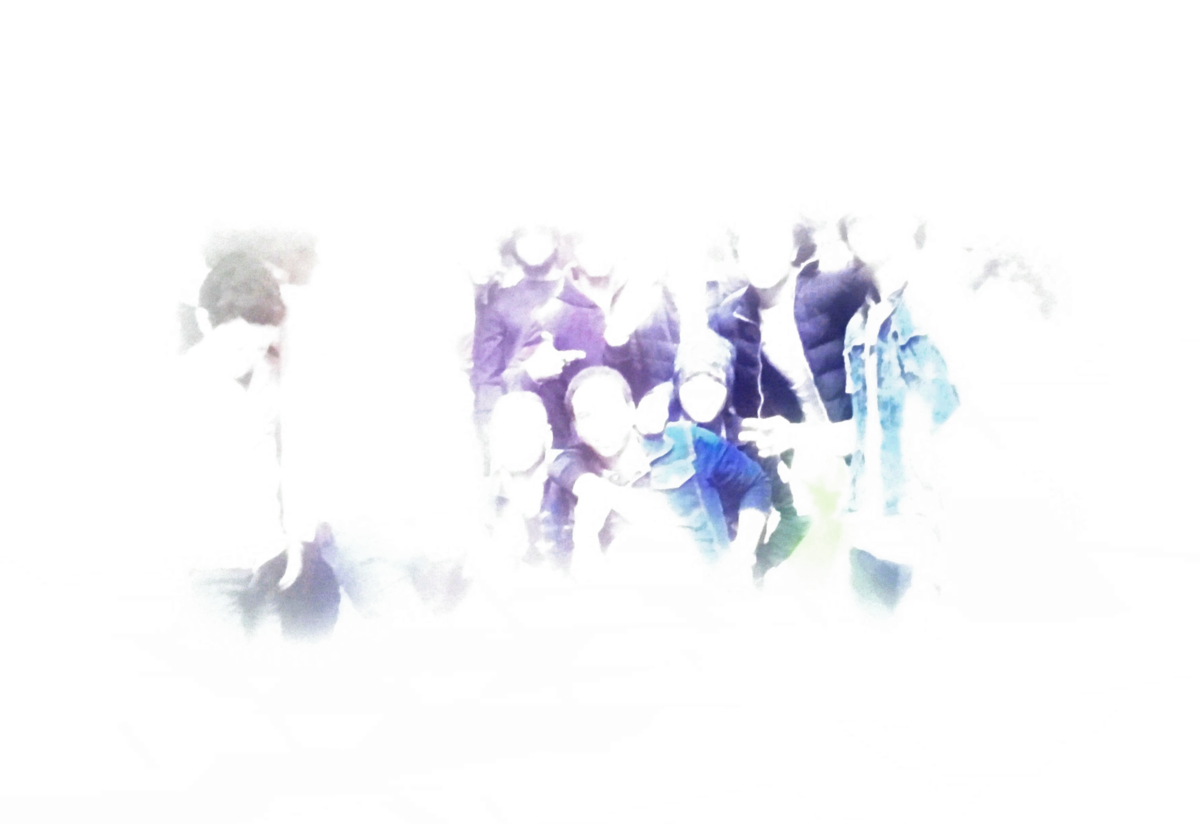
WW: I don’t know why I can’t write when I write all the time, as you say. [Laughter]
YER: Is there a sense of duplicity? In the not-writing, the blockage when you’re here? I mean, in LA you have this bird’s-eye view and perspective and this distance, that same measure of distance that fiction affords… whereas I imagine it might feel strange to live this life and then go home at the end of the day and write about it all. It becomes this conscious act not of writing, but of taking in to write.
WW: I think that’s exactly it.
YER: Which is why I couldn’t write the nonfiction book on Egypt that I had set out to initially. It just felt like a deception of sorts, to have lived all these things and then be pouring them out into this document. Things I had been privy to. Including you.
WW: You wrote about me.
YER: Did that upset you?
WW: Not at all.
YER: I wrote about you because I remain haunted by that, all that, what happened. In the end the things you borrow are true to you, to who you are. Things you can’t shake off, which inform everything you make.
WW: [Hums]
YER: Alcohol might help you loosen up to write? [Laughter]
WW: Do you drink as you write?
YER: [Laughs] No. I mean, I hardly drink. Just socially, and not very much, and not always. Do you still drink, William?
WW: I think we might get arrested for this. [Laughs]
YER: For your alcoholism?
WW: [Gasps]
YER: I’m just kidding. But it is a thing about Townhouse, actually. We always used to drink wine openly here. Is that still the case? Is the neighborhood still open to that? There seems to be a current of conservatism one feels through everything in Cairo these days, which makes me wonder.
WW: Oh, nothing has changed in the lane in that way.
YER: Now that you say that, watching all these young people go by, they do seem so uninhibited. So many young lovers holding hands…
WW: You should see what happens after dark! [Laughter]
YER: It’s a completely new and different generation. Definitely to mine.
WW: Well, I think their parents know they have nothing to offer them. They can’t give them anything…
YER: You mean in terms of material security? No fridge or flat or washing machine…
WW: Exactly. So they’re completely independent.
YER: They’re not extensions of their parents in the way that my generation were.
WW: Yes. So they do and say and wear exactly what they please.
YER: That revolutionary Afro hair…
WW: Imagine what your mother would say if your brother came home with that hair! [Laughs]
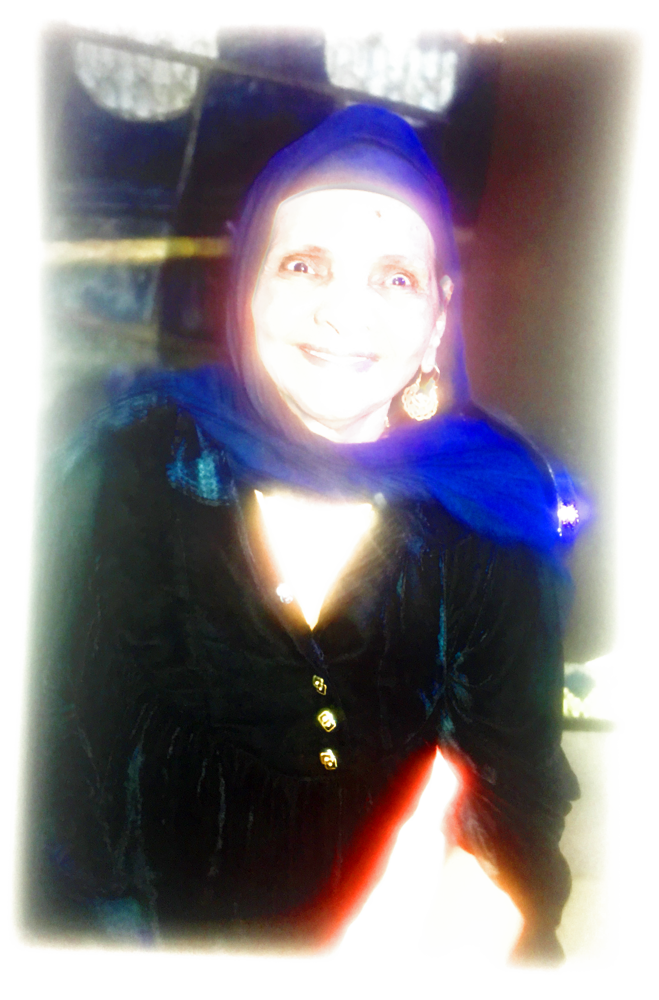
YER: And he’s over forty! But it’s interesting. It does seem like this generation is coming from a much freer place, in a way. I feel like they’re dealing with all the social taboos that most members of my generation were never really able to. Not yet, at least.
WW: I think your generation has done just fine. But in any case, I just really admire writers who publish. Who write knowing that something is going to be made public, regardless of what it is. It’s so brave.
YER: It is scary. I’m always anxious when something is about to be published.
WW: You are? But you’ve been doing this for years.
YER: It never gets easier.
[An eight-year-old boy comes in to show William a drawing. William is extremely enthusiastic about how good the drawing is: It’s a black crayon rendering of the Cairo Tower set against a sunflower-yellow background. The boy leaves]
WW: I just love this boy. He started coming a few months ago. Every day after school he would just come in and start drawing. So I gave him paper and paints, and every day he makes new paintings. When he sells them, I give him money. There’s a whole group of them who pop in and out after school. Their parents work in the lane, or nearby. One of the fathers is so completely invested in his daughter. You know him — he runs the sandwich cart down the street. He personally brings her every day, and she sits in the library, looks through books, draws. Isn’t that fantastic?
YER: Did you ever want children, William?
WW: Never.
YER: Because you are surrounded by children. Of all ages.
WW: Of all ages. Even the thirty-five-year-olds are like adolescents.
YER: And yet… I was talking to someone earlier — Sarah Bahgat [the program manager at Townhouse], who is definitely not a child —
WW: Definitely not.
YER: And she was saying that one of the many things she appreciates in you is that she can talk to you about anything. Even politics.
WW: We have long talks about politics.
YER: Which is so rare now, isn’t it? Why do you think that is? Are people too scared to speak? Or is it just the sense of defeat, and the trauma? I mean, for a time it was the only thing we spoke about. And then 2013 happened.
WW: Exactly. Nobody talks politics now. Everyone has just put down this shield.
YER: So what do they talk about?
WW: The things they used to talk about before the revolution.
YER: Which I can’t even remember. I can’t remember life before. And I can’t quite seem to find my bearings or orientation since.
WW: I think everyone feels that way, but nobody will talk about that either.
YER: But there are significant political shifts, you see, unspoken ones. Like that guy in the lane you pointed out yesterday.
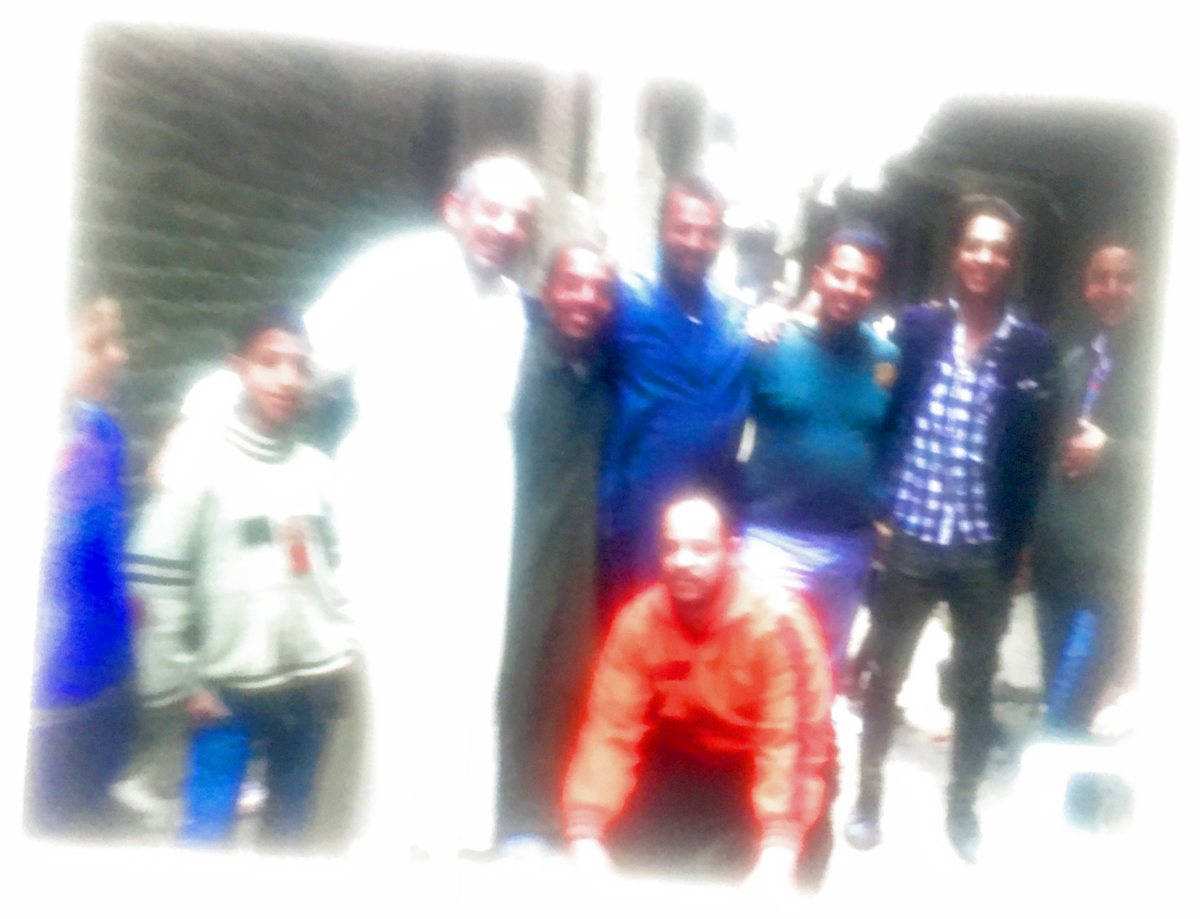
WW: The one who looks like he’s either homeless or an artist?
YER: [Laughs] That one.
WW: That’s an amazing story. Do you remember him from before? From before the revolution? He was a plainclothes police informant, from the local police station.
YER: I have no memory of him as police.
WW: But he used to hang around here. He came to our exhibitions, milled around with the artists in the lane, spying all this time. And then, slowly, he started to dress slightly differently, more creatively — once he came with a yellow tie. And as things became more charged, during the revolution and then after it, he began, I think, to feel conflicted. He had a relationship with the lane, with all of us. And then he started growing his hair out and looked like — well, like he does, either a tramp or an artist. People, young filmmakers from the lane, asked him to act in their films. And so he did. He got more jobs, with bigger directors. And, finally, he left the police station.
YER: He became one of us, or you. Part of the life of the lane.
WW: Isn’t that incredible?
YER: It makes me think back to that photo, from 2011, of that woman kissing a young conscript, holding his face and kissing his cheek. Do you remember? He was so young, pretty. And she could have been his mother. And you could see in his face, his eyes, that he didn’t want to be there, in that outfit, on that side of the divide.
WW: It was a real conflict for so many during that time. All those people who defected.
YER: The army officers and police — you’re reminding me again. And those who felt torn too. It all feels incredibly far away. Makes me ache.
WW: That’s why nobody talks about it anymore.
YER: My problem is that I feel I’ve tried to move so far forward, but I’m still haunted by that old life, and I can’t seem to resolve, to reconcile, to let go. Maybe it’s the writer in me. Maybe it’s just grief. I mean, I can’t believe we lived all that — there was that moment where I thought I would forever be in Cairo, politically involved and a part of this incredible thing. That I would have a place, a role. I felt so free here.
WW: Everyone.
YER: We were talking, during a Bidoun meeting, about how so many of the texts we were considering revolved around dreams and sleep. Are people sleeping their way through this?
WW: Hours and hours of sleep.
YER: I’ve been sleeping about eleven hours a night since I got back here, can you believe?
WW: Oh, that’s nothing. [Laughter]
YER: I like this life.
WW: Isn’t it great?
YER: But will we ever wake up?
WW: I think things are happening. Look. [Stands up, peeks through the bookshelves onto the open Factory space beyond his office]
There are constantly people in and out of the space. At all times of day. People I’ve never seen before walking by and stopping to see what’s happening or what this place is. Some of them will go over to the library and pick a book off the bookshelf, or just look at the art. So many people coming in wanting to show their own work and see if they can sell it in the shop or exhibit.
YER: I’ve noticed that. There seems to be much more pedestrian traffic in and out of Townhouse.
WW: Much more.
YER: Why do you think that is? Is it because you’re all working down here on street level now, since the building collapsed? Where before the Factory was mostly just for exhibitions, when you had them. [Laughter]
WW: I think it’s definitely that, which is why I want to keep our offices down here.
YER: It makes a lot of sense, in terms of what Townhouse has become.
WW: [Laughs] What have we become?
YER: It’s different now. It feels different. Less like a contemporary art gallery, plugged into the international scene, and more like… a community center? An amazing one at that. And… maybe also an incubator for who knows what.
WW: An incubator for who knows what.
YER: You keep repeating things I say.
WW: I keep repeating things you say? [Laughter] It’s true, it’s true. I do.